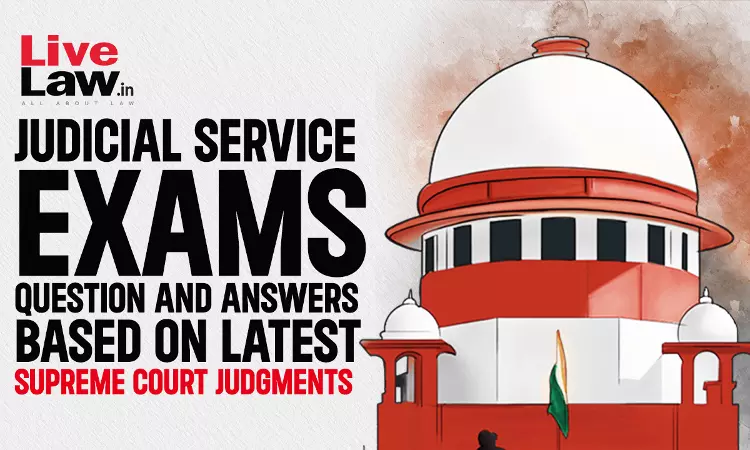Important MCQs Based On Latest Supreme Court Judgments For Law Examinations
Yash Mittal
15 Dec 2024 7:11 PM IST

Next Story
15 Dec 2024 7:11 PM IST
Q 1. The prosecution has registered a case against the Police Officer for filing a false case and fabricating the evidence. However, the accused police officer sought exemption from prosecution as no prior sanction was obtained under Section 197 Cr.P.C. before prosecuting him. Decide.a. No Sanction is required to prosecute a public servant for acts committed by him that are not part of...
